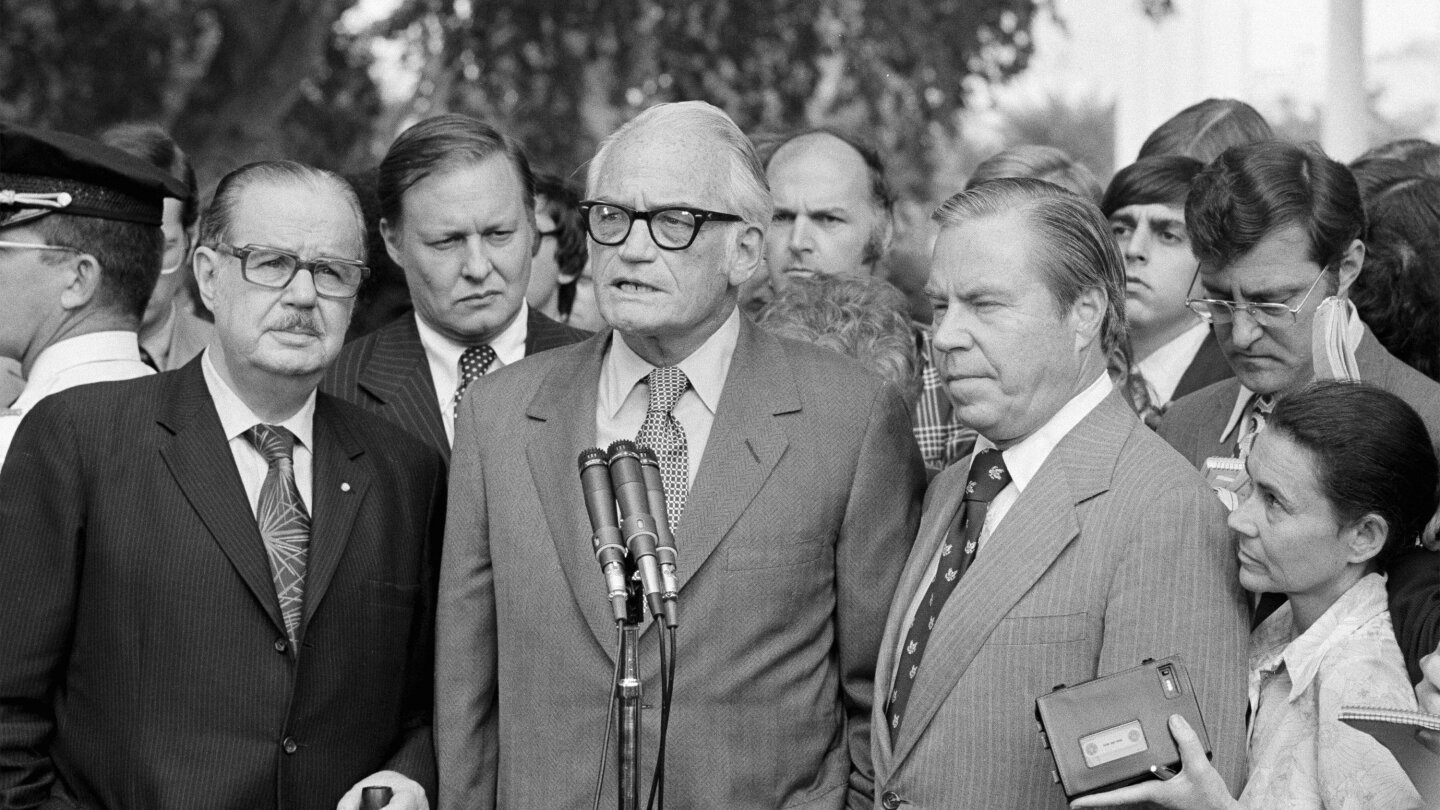NEW YORK (AP) — On Aug. 7, 1974, three top Republican leaders in Congress paid a solemn visit to President Richard Nixon at the White House, bearing the message that he faced near-certain impeachment due to eroding support in his own party on Capitol Hill. Nixon, who’d been entangled in the Watergate scandal for two years, announced his resignation the next day.
Could a similar drama unfold in later stages of the impeachment process that Democrats have now initiated against President Donald Trump? It’s doubtful. In Nixon’s time, there were conservative Democrats and moderate Republicans. Compromise was not treated with scorn.
In today’s highly polarized Washington, bipartisan agreement is a rarity. And Trump has taken over the Republican Party, accruing personal rather than party loyalty and casting the GOP establishment to an ineffectual sideline.
“In the past in the U.S., party members would dissociate themselves from disgraced leaders in order to preserve the party and their own reputations,” said professor Nick Smith, who teaches ethics and political philosophy at the University of New Hampshire. “But now President Trump seems to have such a personal hold on the party — more like a cult leader than a U.S. president — that the exits are closed as the party transforms into his image.”
The delegation that visited Nixon was headed by Sen. Barry Goldwater of Arizona, the GOP’s unsuccessful presidential candidate in 1964. Goldwater, who had a long tenure as a party elder, was joined by Sen. Hugh Scott of Pennsylvania, a Republican known for his strong support for civil rights, and Rep. John Rhodes of Arizona — the GOP leaders in their respective chambers.

